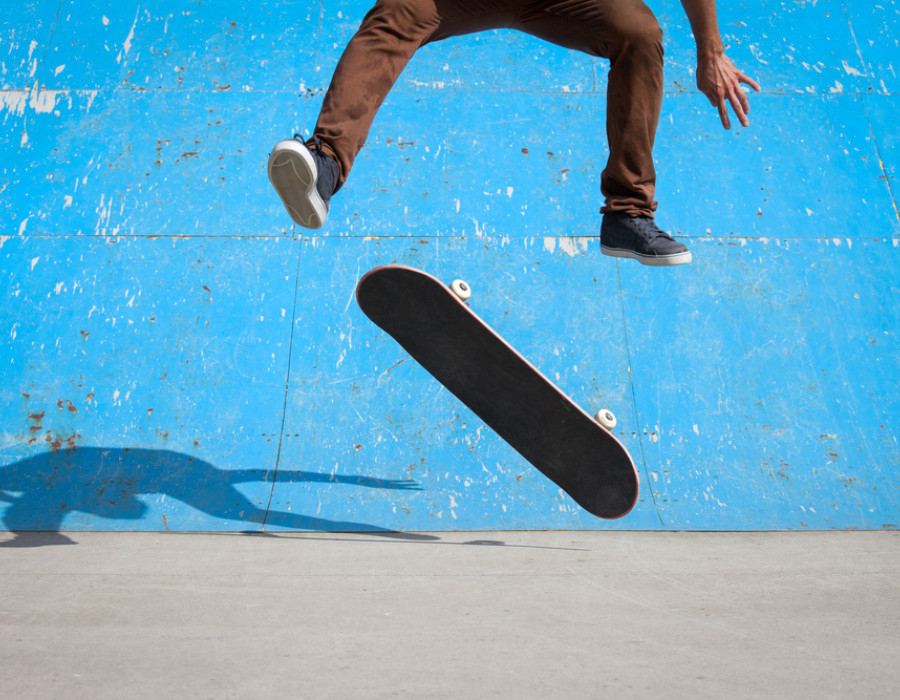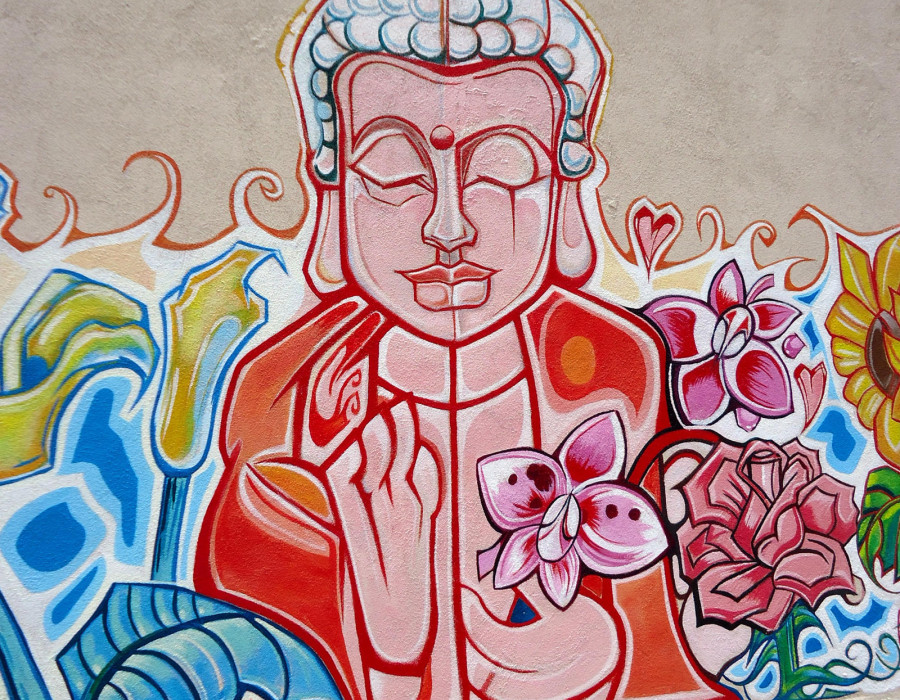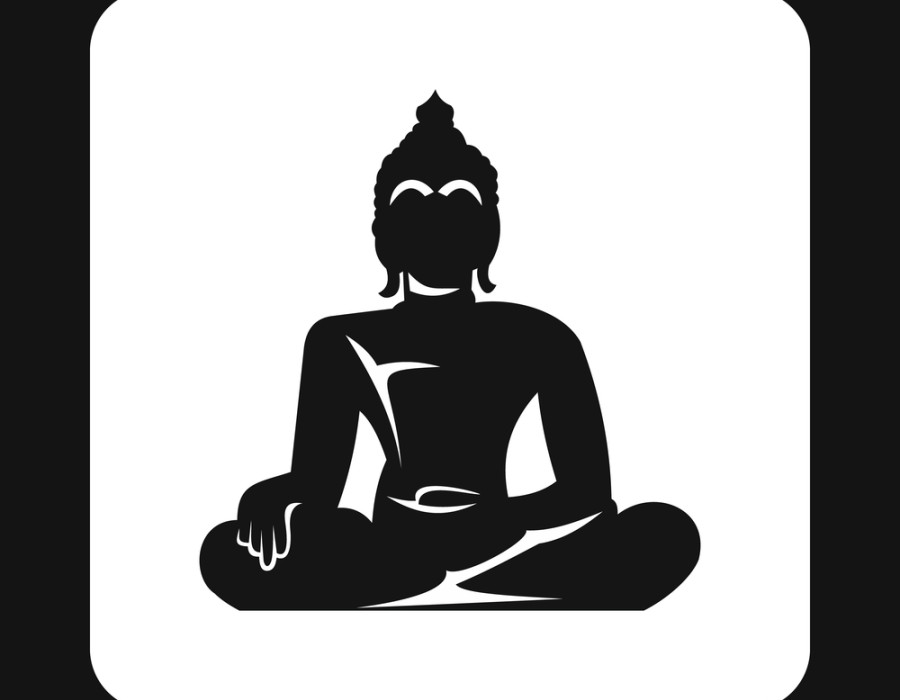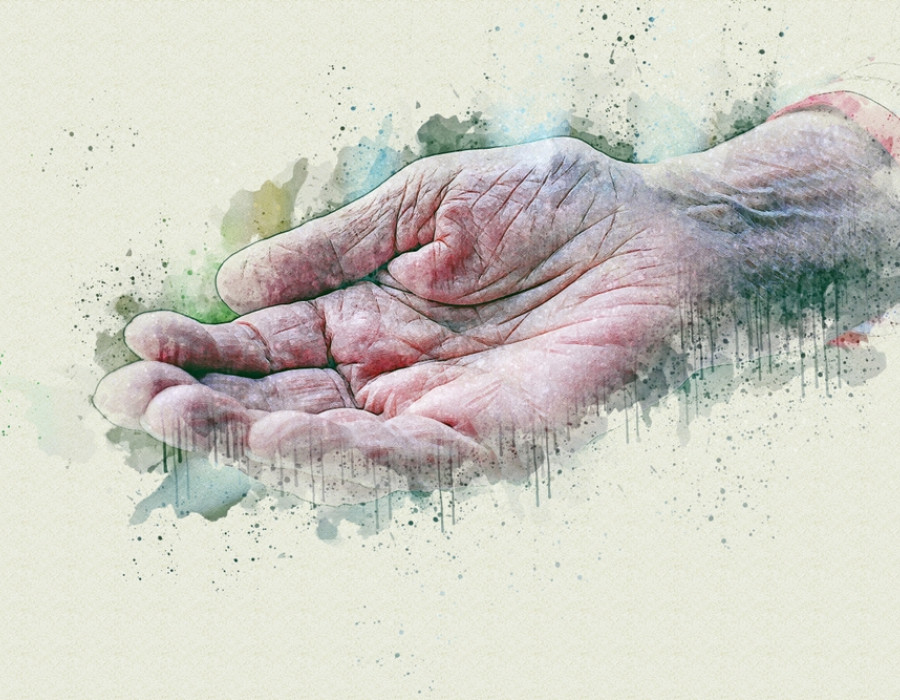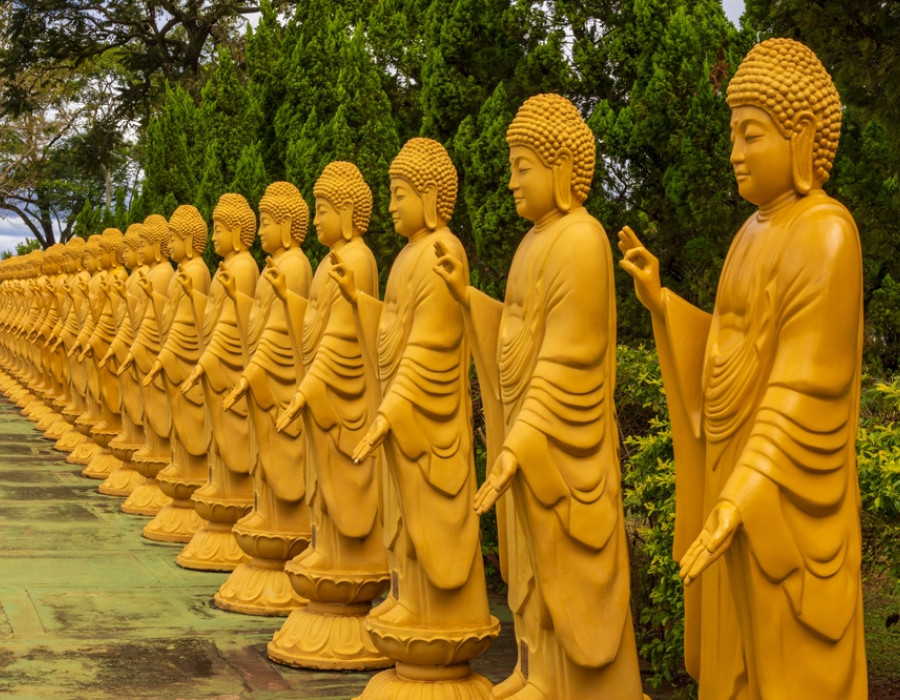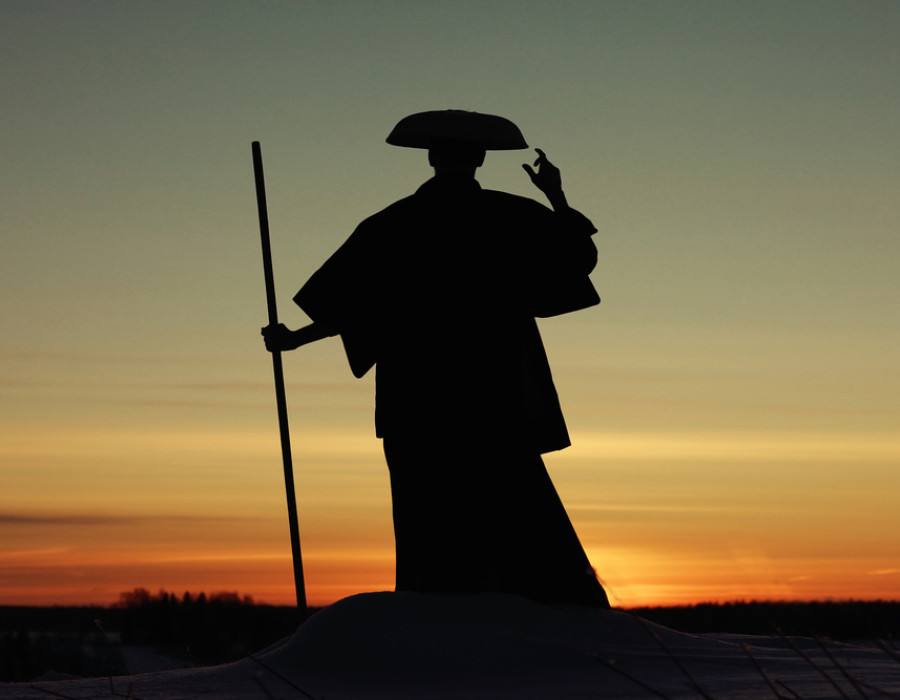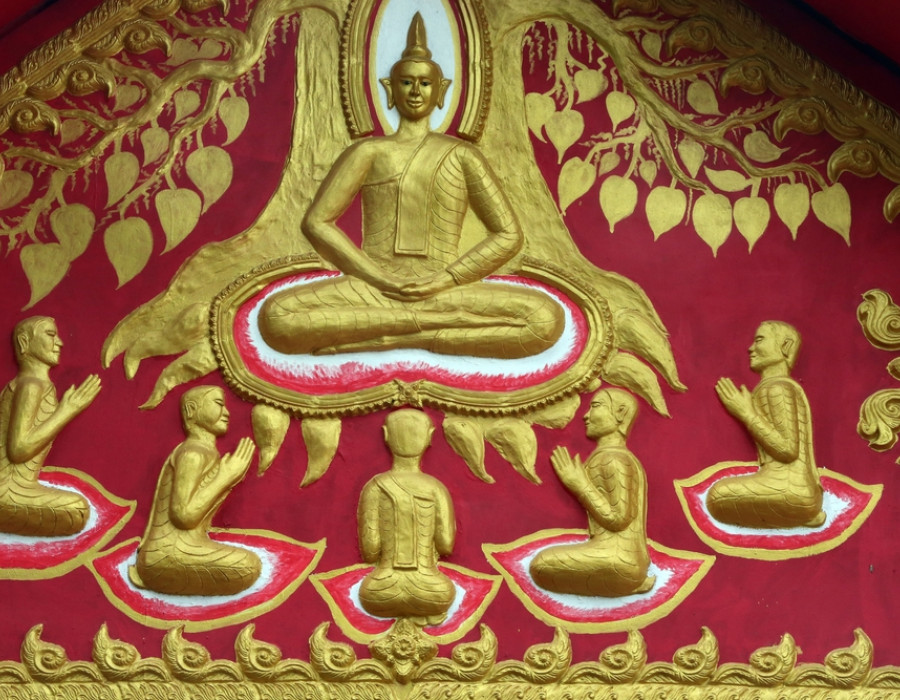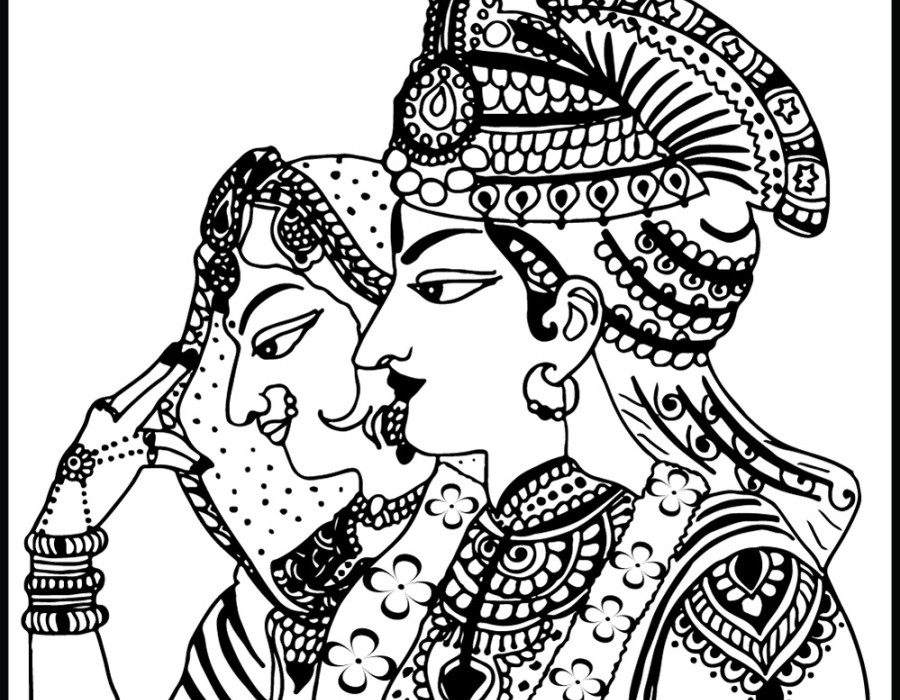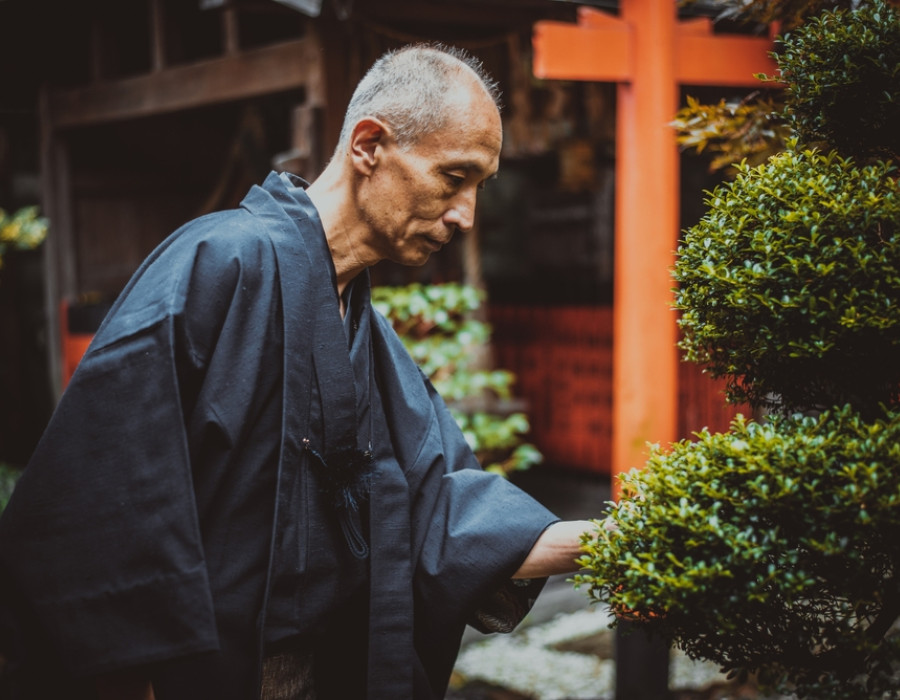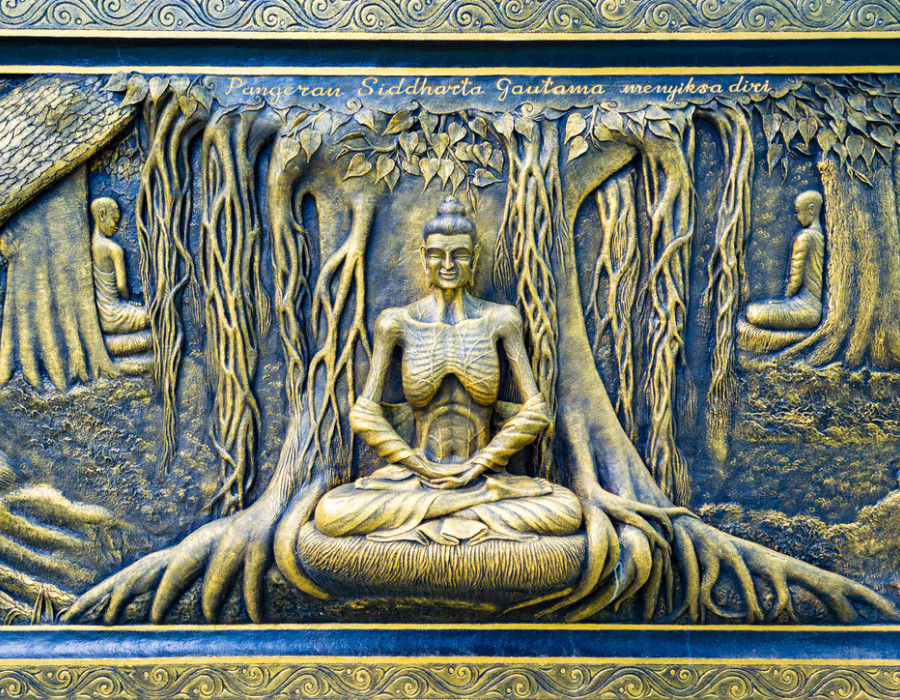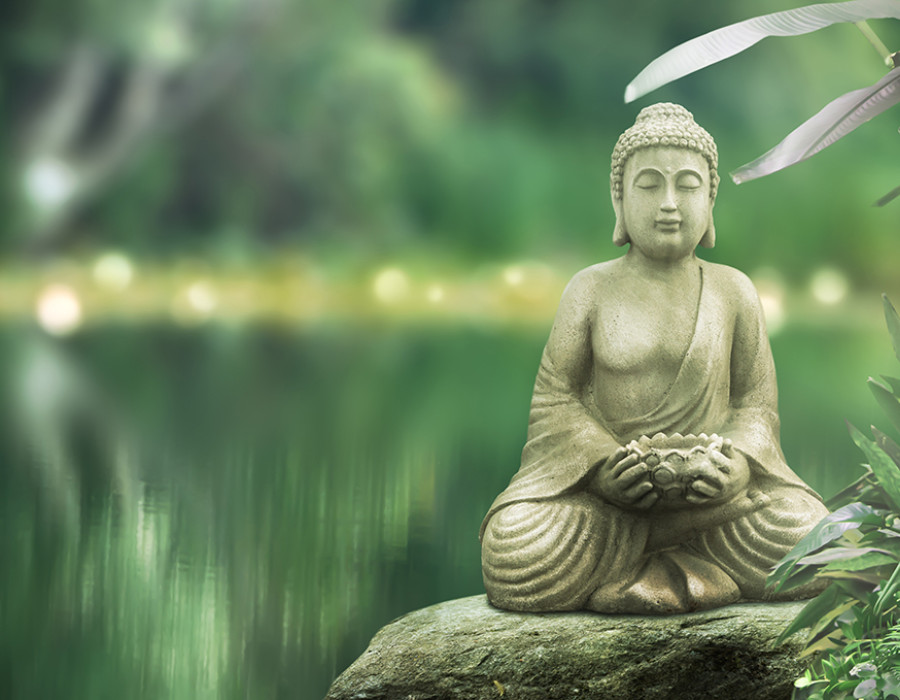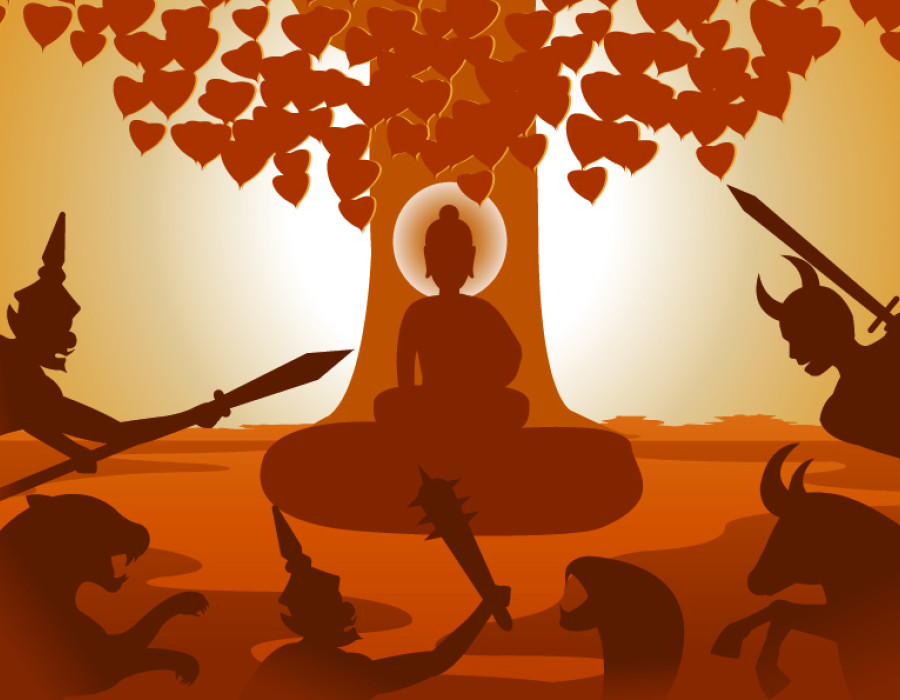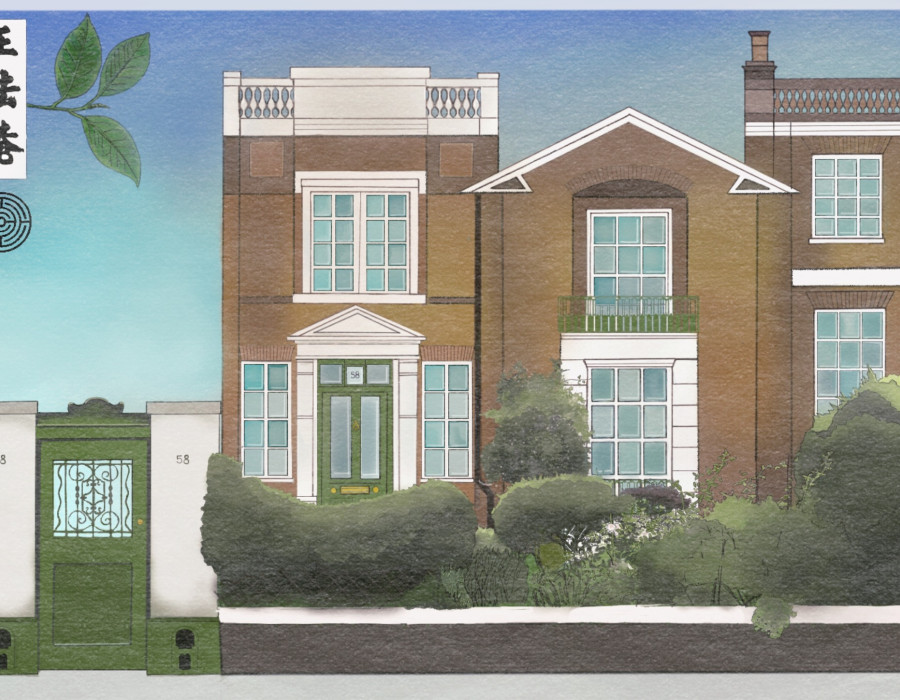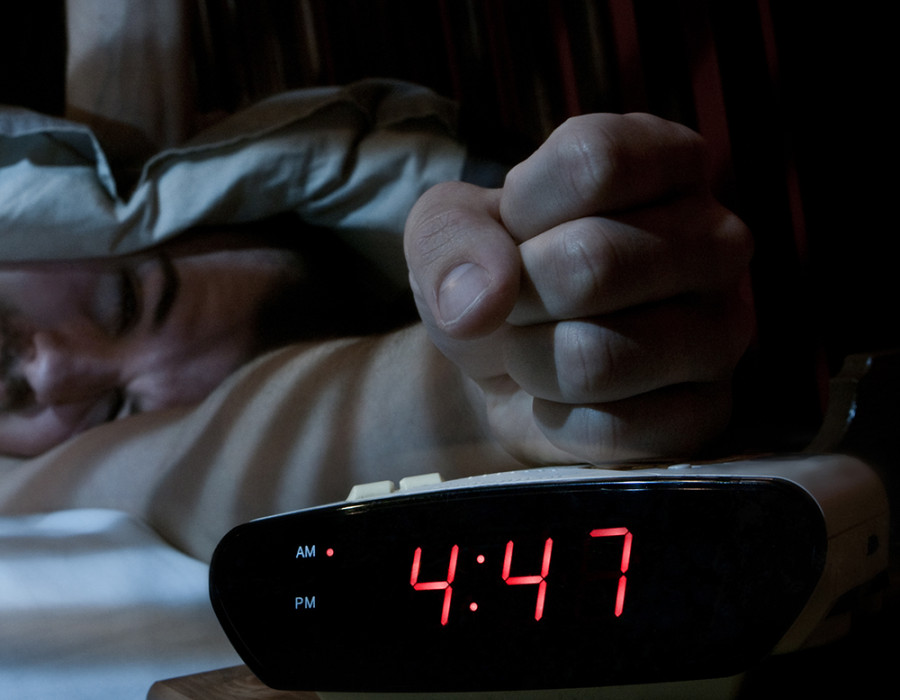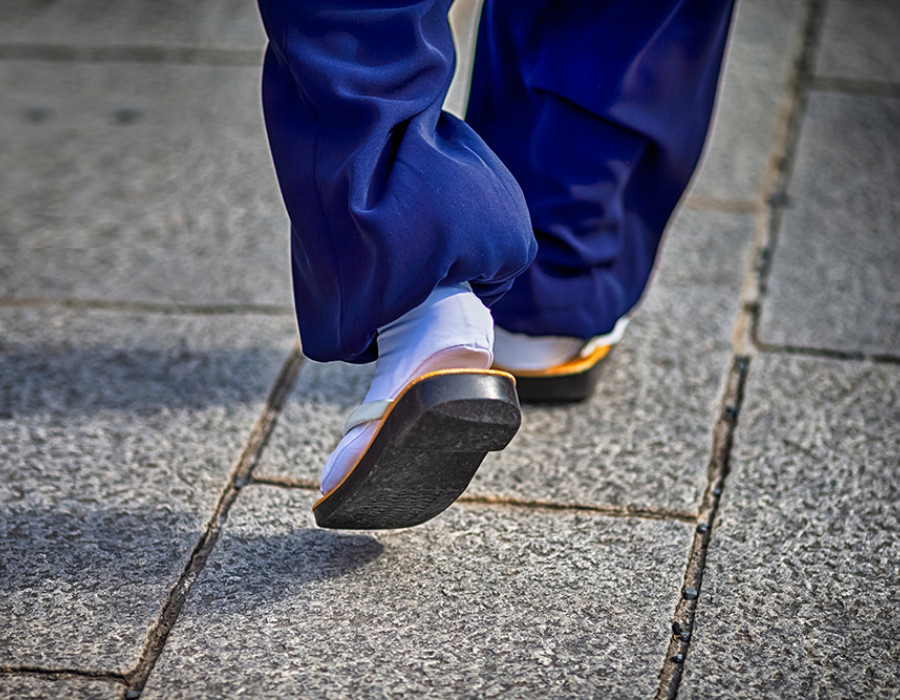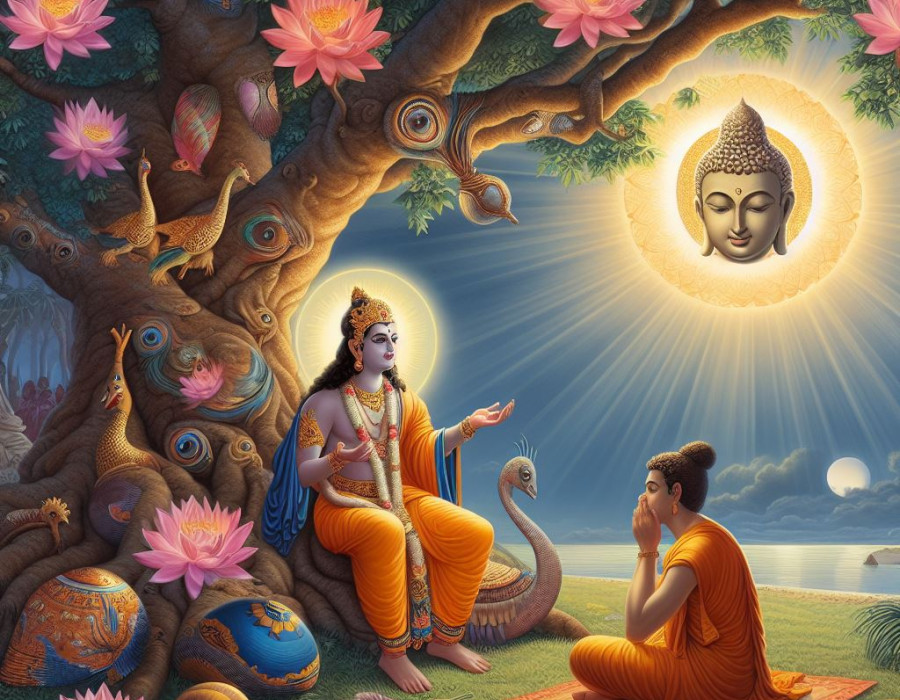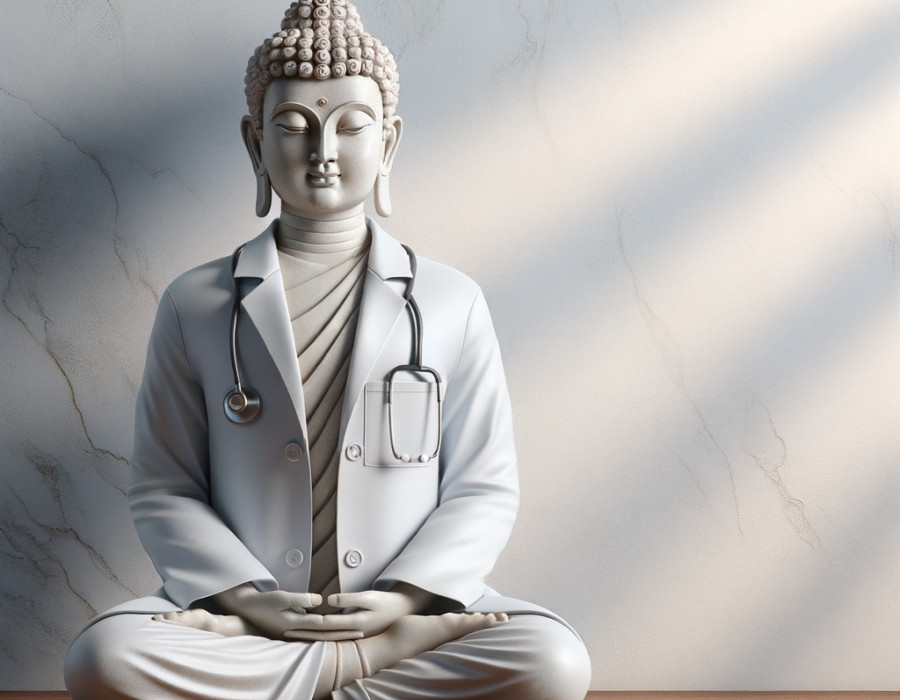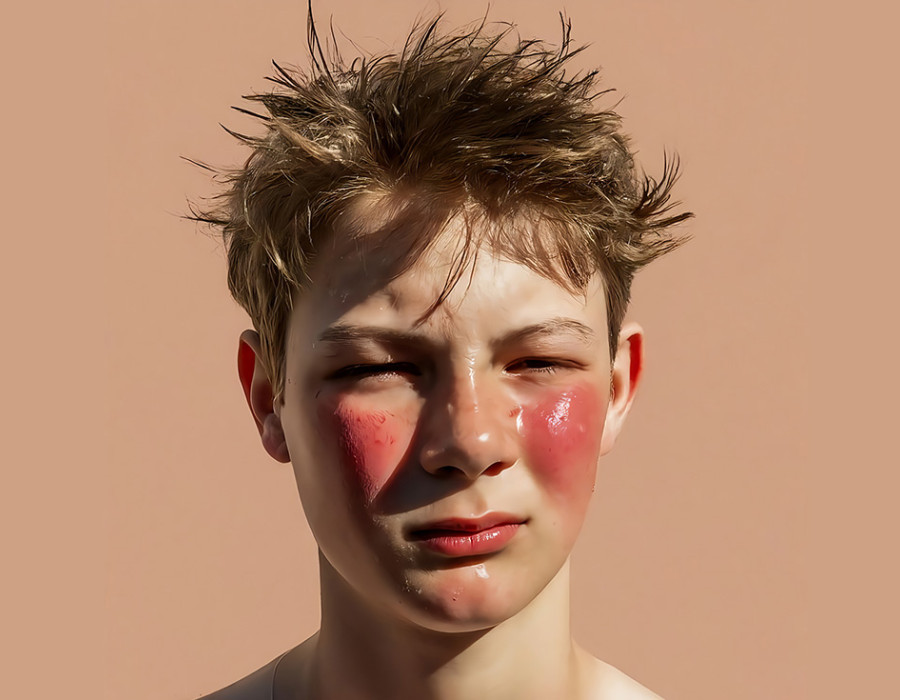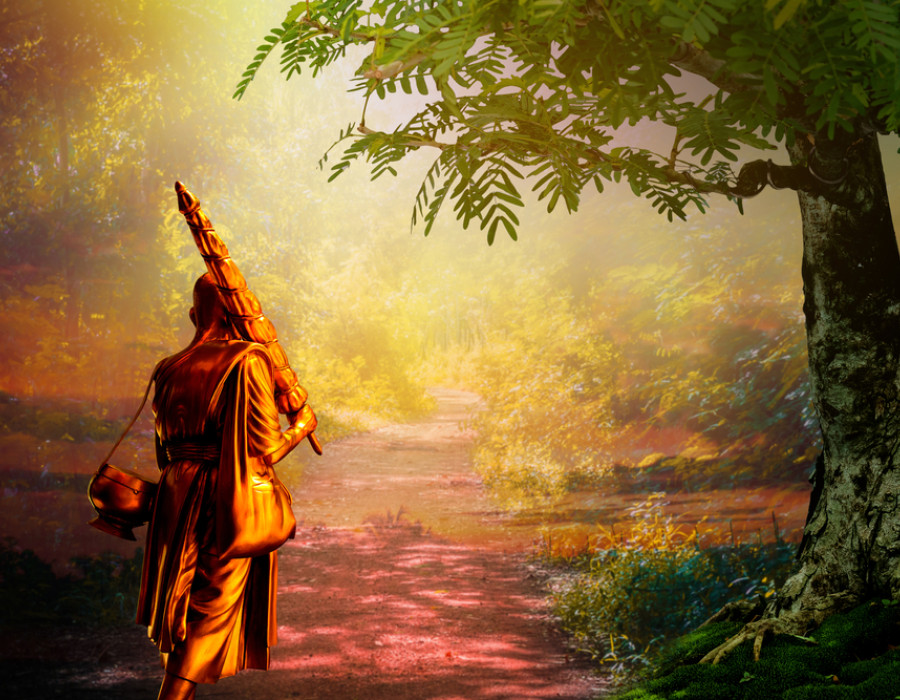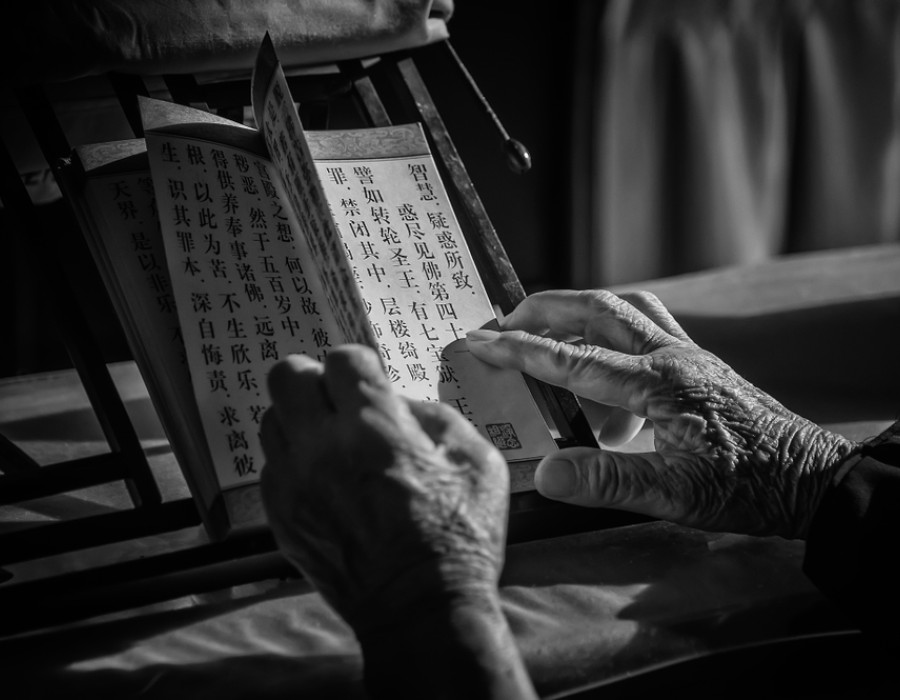
Martin Goodson
12. Learning to bow
THE BUDDHA BLOG
Jizo teaches our hyperactive protagonist the secret to finding inner stillness.
 ©
© shutterstock
Jizo finishes eating his noodles in silence. Then he places his chopsticks down on the table, folds his paper napkin and stands up.
He smiles at the five of us: "Time for meditation practice!”
I like to watch Jizo do things: simple things like eat and drink or stand up… or walk. He does everything very easily, never too fast or too slow but just the right speed. I haven’t figured out yet why there’s even such a thing as a right speed, but there’s no denying it. The man’s got a way of doing things. He gives his full attention to everything and it’s never fussy. Whatever it is, he nails it and moves on, so whether it’s one thing – likeing putting down his chopsticks in a perfect line beside his bowl – or lots of things one after the other it always looks sort of effortless.
We file out of Wagamama onto the Embankment. It’s summer. The sun is shining. There’s not a cloud in the sky and every boat on the Thames looks like a cut-out from a postcard. It’s been going on like this for a week. Wow! This is London I’m talking about, not California. The Evening Standard should run a front page photo of kids jumping into the fountain in Piccadilly Circus with the headline: “SUN, SUN, SUN. NO RELIEF IN SIGHT” There are masses of people about: boys with their shirts off; birds wearing their partner’s shirts and little else. They’re having picnics under the trees or just sunning themselves on the benches. We make our way to a side door of the National Theatre and take the big service lift they use for props all the way up to the top terrace.
Behind the potting shed, just as Jizo promised, is a row of square blue mats with round black cushions on them. He extends both arms toward us, like he’s welcoming us into his home:
“No need for formalities. Just find a place and sit down.”
I can feel my heart beat. I’m sure my armpits are wet. I say to myself: “You’re about to sit on a cushion. That’s all there is to it. What’s there to be nervous about?”
Nothing doing. My body feels it’s about to be embarrassed and isn’t paying any attention to me. In fact, that’s my whole problem: ADD - Attention Deficit Disorder! It’s like there’s a sign on my back that says “dummy”. I fumble towards the nearest cushion and plop myself down, but as soon as Jizo starts to talk, something odd happens: I start to relax. There’s nothing to worry about, Jizo says. He’s speaking to everyone, but it feels like he’s speaking just to me:
“You have a nervous system that works automatically, whether you’re awake or asleep. Without it you couldn’t breathe. Strictly speaking YOU don’t breathe. IT breathes you. The body knows what it needs to do to survive. It’s only our mind – perhaps we would be better to call it our thinking – that gets in the way. Then we feel self-conscious and awkward and make mistakes.”
Jizo points to my ear phones and wags his finger at me. “Dylan, you don’t need that right now. We are going to listen to our heart … not to rap music!”
Everyone laughs. It kind of breaks the tension. Actually, I’m recording Jizo, but he probably doesn’t want me to, so I don’t bother to explain. Anyway, he’s already on a roll.
“Why do we meditate? Learning to meditate without knowing why is like learning to swallow without having a bowl of nice hot noodles in front of you. It’s a pointless exercise."
Jerry raises his hand: “But meditation helps you relax, right?"
Jizo nods. “The body does relax in meditation, but that’s not why the Buddha took it up. He already knew quite a bit about relaxing from his days as a prince!”
My feet are getting restless. I just sat down on the mat and already I want to get up, but something keeps me in my place. Why am I sitting up straight with my legs folded at the knees? I look round and see that all the others are too. It’s odd because Jizo hasn’t showed us a thing yet. Maybe it’s the most comfortable position, but I don’t know. Usually, we would be lying about or resting against a wall or something.
On cue Jizo answers my question: “Meditation is about collecting the heart, but to do this we must first collect the body. That’s why it’s very important to learn the right form.”
Toshi, the cook at Wagamama, speaks up for the first time. He looks Japanese but his accent is pure Sloane Ranger: “What do you mean by form – sitting on a cushion in full lotus position?”
Jizo shakes his head. I take this as a “no”, but with Jizo you’re never sure. He looks like he’s thinking deeply about Toshi’s question, and I notice that he’s always careful when he answers questions about the dharma.
“There is a right way to sit on the cushion. It doesn’t need to be in the lotus position with both legs crossed. Not everyone can sit this way, particularly people in the West who have been brought up sitting on chairs. But there is a right form for everything, not just for sitting in meditation.”
Jizo looks directly at each one of us in turn. “Any more questions before we start? Yes, Harriet.”
The girl Jizo calls Harriet is one of the girls at Wagamama. She’s tall and skinny. She wears three earings in her ears and has very pale skin and dark eyes that she makes even darker with lots of eye make up. She’s frowning now like she might be in pain. Anyway, she’s trying very hard to look cool and not squirm around on her mat. “Jizo, what is ‘collecting the heart’ ? Is it the same as collecting your mind?”
Jizo breaks into a full smile, obviously pleased. Harriet has hit the bull’s eye with this question.
“Often I hear people say, “So and so has a good mind” They mean that this person is clever. This person is a good thinker…” Jizo laughs. “...but meditation has nothing to do with good thinking or bad thinking, so it’s best not to talk about collecting your mind or your thoughts. All we need to do is be aware of our thoughts and our feelings as they rise up one after the other. This awareness is what we call our heart. It is not our physical heart, but it is the heart of the matter if you’re trying to meditate!"
He claps his hands. “Ok. Everyone stand up. We’re going to do a little bowing practice.”
I haven’t a clue what Jizo is talking about or what ‘bowing practice’ has to do with meditation, but I’m happy to be off the floor.
Jizo shows us how to bow to the mat and then turn around and bow away from it. It seems a little silly at first, but who am I to complain?
Every time I bow, it makes the backs of my legs stretch out in the most wonderful way, so I let Jizo’s words wash over me like a gentle breeze: “When we bow we use our whole body.”
Jizo brings his hands together like he’s praying. His fingers and thumbs are together and straight and point out from his chest at a slight angle. His back is straight too, as always, and he holds himself upright in a way that looks balanced and relaxed. If they had skateboarders when he was young, he would have been awesome.
“ Watch carefully and do as I do and try to stay together”
He bows from the waist until his head is parallel to the ground and comes up again. Not too fast. Not too slow. Like he does everything. We copy his bow, but make a sorry go of it. What a ragged lot we are! Not one of us bows at the same time or in the same way as Jizo. This goes on for several more minutes as we gradually get it together. By now everybody is smiling and Jizo seems happy.
“ Bowing is one way of giving our attention whole-heartedly to what is being done at this moment. This is what we call “collecting the heart”. This is also what we try to do when we meditate. Ponder on this until next time.”
There he goes again with his ‘ponder’ stuff! I look up and notice for the first time that the sun is much lower in the sky. I wonder how late it is. What have we been doing all this time? Can I have been sitting STILL all this time? Me, a kid with ADD! Jizo hasn’t even shown us how to meditate. Or has he?
THE BUDDHA BLOG | Michael Haggiag
Books

